#Etc. etc.
Explore tagged Tumblr posts
Text


two very old drawings i did for the starclans chosen map. both featuring bluestar
#with @/warriorsproject's designs#the first scene is after bluekit got teased for a squirrel falling on her#second is tigerclaws exile#if i could id prob redraw these but theyre old it is what it is#waca#wc#warriors#warrior cats#bluekit#bluefur#bluestar#tigerclaw#tigerstar#snowkit#snowpaw#snowfur#bluepaw#thunderclan#starclans chosen#etc. etc.#my art
1K notes
·
View notes
Text
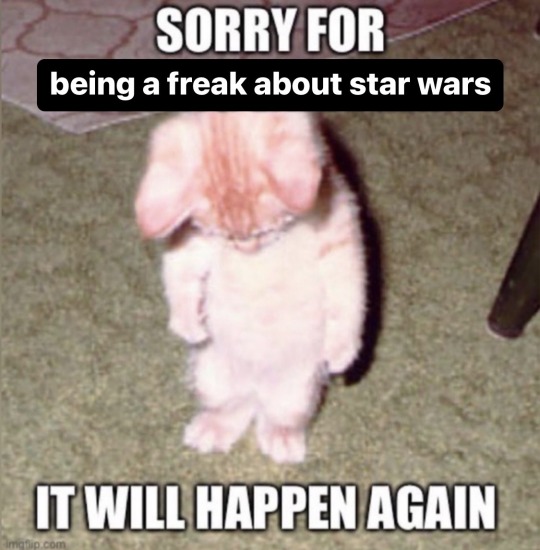
#star wars#star wars shitpost#this is specifically about#thrawn#btw#idk why thrawn (2017) put me in a chokehold bc none of the heir to the empire books did but here we are#fuck it let’s add a bunch of other tags too#rogue one#andor#the mandalorian#ahsoka tano#the clone wars#star wars rebels#arc trooper fives#darth maul#etc. etc.
7K notes
·
View notes
Text


No one important, don't worry about it.
#my little pony#mlp#mlp g4#rainbow dash#Sunny Rays#mlpfim#my art#mlp fim#my little pony friendship is magic#swap six#side stars AU#I'll explain later but the Mane 6 (canon version) play a wide range of side character roles:#Rainbow Dash is a Trixie level antagonist for Sunny Rays while Applejack is family to Ginger Gold and of course Twilight is a villain -#Rarity and Shy and Pinkie also have side character roles with the Swap Six I'll sketch it at some point I'm sure.#etc. etc.#this is also - according to some - gay#some have said that this is giving rivals to lovers#I'm not /not/ saying that...#do with that what you will.#my sketches
690 notes
·
View notes
Text

Almost more ear than dog
#he's ready to listen to all your woes#all ears#half rabbit half dog#etc. etc.#dog#dogblr#dogs#dogs of tumblr#english toy terrier#puppy#puppies#terrier#terriers#pretty boy remi#13 weeks#cute#animals
199 notes
·
View notes
Text
I love how Sauron trots out the "I have many names" line every time someone works out who he is. He's so proud of all those names! He's dying for a chance to rhyme them all off! He worked hard for them all! Someone!!! Please!!! Just stand there a bit and let him list all his names!
#The Rings of Power#Sauron#alias#Mairon#Gorthaur#Halbrand#Annatar#Thû#Pookie#Babygirl#Princess#etc. etc.
141 notes
·
View notes
Text

Me during 8am lectures
202 notes
·
View notes
Text
[ “GOSSIP” ] :


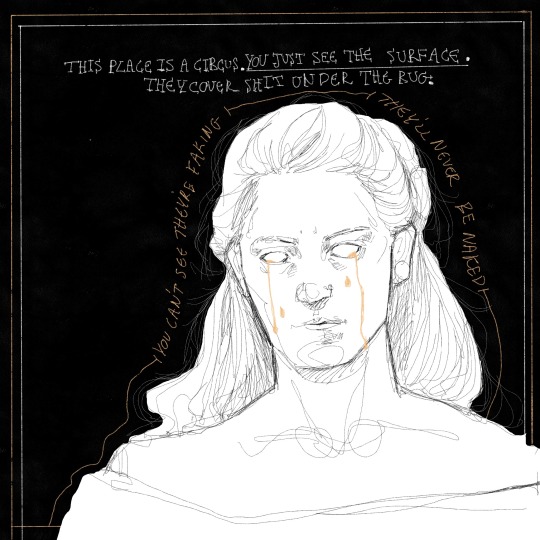
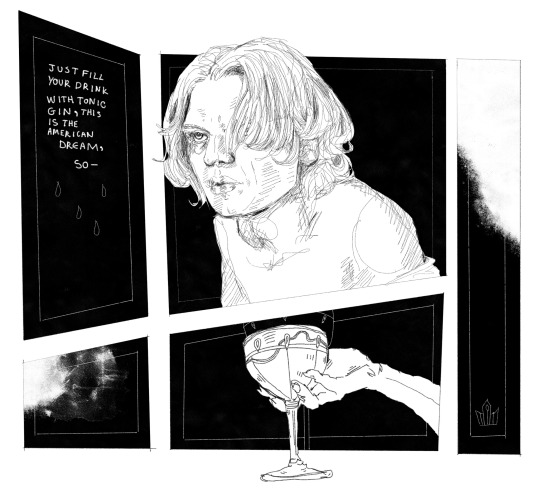
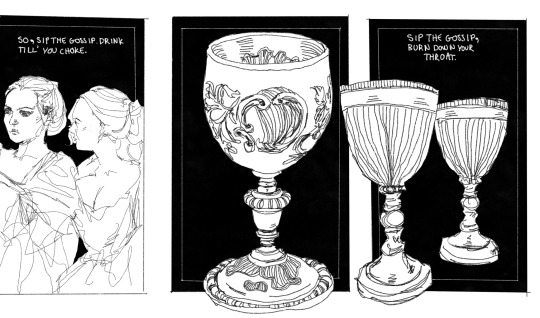


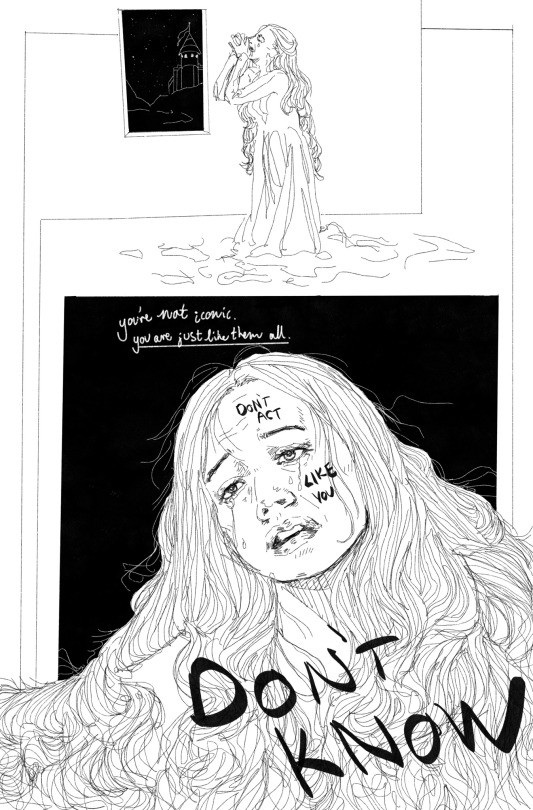
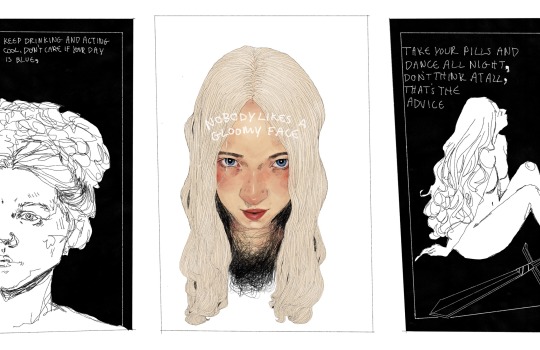
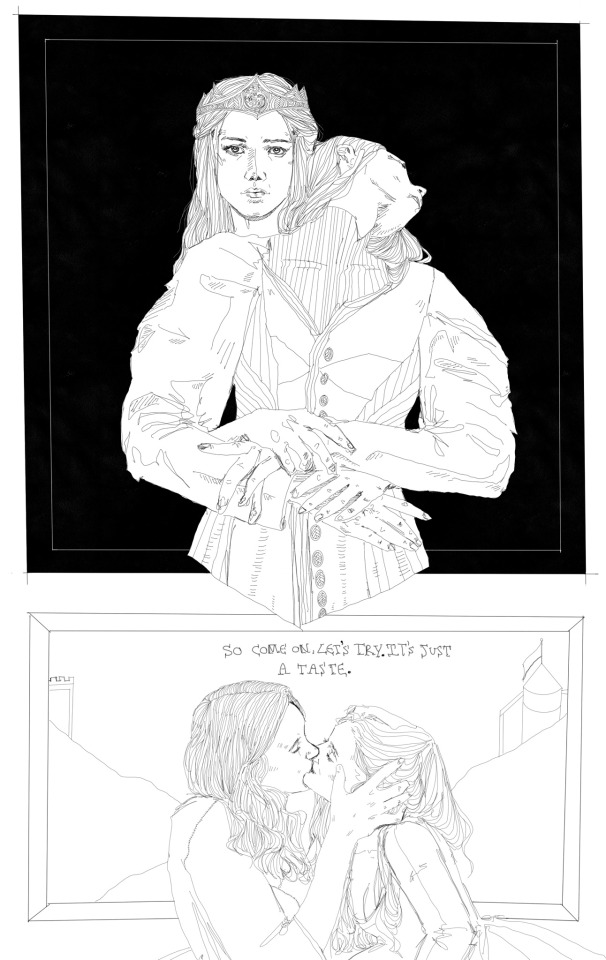
Sip the gossip, drink ‘til you choke
Sip the gossip, burn down your throat.
You’re not iconic, you are just like them all
Don’t act like you don’t know.
— Maneskin ft. Tom Morello, “GOSSIP” from RUSH!
#rhaenicent#alicent hightower#rhaenyra targaryen#rhaenyra x alicent#house of the dragon#hotd#my art#so basically gossip has followed Alicent + Rhaenyra all their lives for different reasons#and it was gossip that deteriorated the lives of their children and built up to the Dance#even after Alicent is on house arrest#the whispers of the court and the image of Rhaenyra never leave her#etc. etc.
908 notes
·
View notes
Text
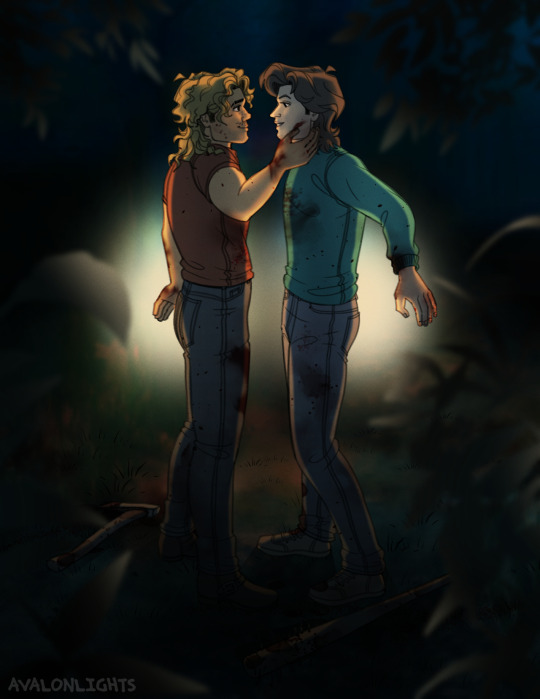


"Guess you finally learned to plant your feet." "Yeah, some asshole wouldn't shut up about it."
Here is my creation for the @harringrove-relay-race! Next up, please look forward to a wonderful work from @hargrove-mayfields! 🏁
#harringrove#billy hargrove#steve harrington#stranger things#harringrove relay race#harringrove fanart#avalonlights art#monster hunting#billy joins the party#etc. etc.#those demodogs are toast 🍞🏏🪓
364 notes
·
View notes
Text
i think doll lines have a bad habit of giving up and quitting when they have so much room to improve and grow.
#made this post for a myriad of reasons#ghoulia not getting anymore g3 dolls despite her only having 2#mga deciding to randomly reboot rainbow high when it was already doing successful#mga cancelling mermaze before even releasing the sirenz dolls and making ppl track down the slumber party dolls#spinmaster canning mermaid high not even after their second line of dolls#etc. etc.#i might be wrong about some things and ik they primarily do this because of money and theyre corporations so uh#ozzie rambles#dolls#dollblr
59 notes
·
View notes
Text
Are we ready to admit that every character in WoT is polyamorous and bisexual or are we not ready for that conversation yet
#wheel of time#wheel of time meme#wot on prime#wot book#mat cauthon#rand al'thor#perrin aybara#egwene al'vere#nynaeve al'meara#elayne trakand#etc. etc.
362 notes
·
View notes
Text
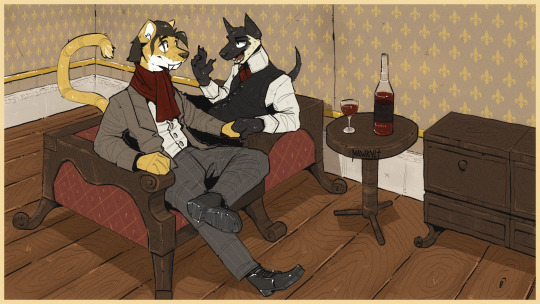
#sketch#furry#anthro#personal work#commission#original characters#ballroom#western#And they were roommates#etc. etc.
185 notes
·
View notes
Text
i always say my type is dark hair but then some mf with white hair appear
#it's so many it's embarrassing#joost klein#astarion#daemon targaryen#zen mystic messenger#etc. etc.#and even ppl i know 🤕
115 notes
·
View notes
Text
Origins Timeline
Origins is epic in scale, and we know it takes place over the course of about a year (Ostagar happens in 9:30, the Archdemon is killed in 9:31).
I wanted a good reference for how long my Hero had been on the road at each part of the game (partly because this would inform their relationships to companions, partly just for reference because I'm a nerd).
So, without further ado:


(click to see the pictures in better detail)
So I've estimated that the whole journey from the moment you leave Flemeths Hut to the moment you reach Denerim and begin preparing for the landsmeet to take about 9 months and two weeks. That's accouting for a total of 6 months of travel (you're on the road a LOT in origins, I think way more than the game can accurately give you a sense of) and 3 months and two weeks doing the various quests you actually play through in the game (with about a month and a half spent in Orzammar).
I used the following resources to help me work things out, as well as focusing on the gameplay and lore (it doesn't make a lot of sense that you'd be spending days and days in Honnleath, for example).
Lavalampelfchild's timeline
Grogblogging Origins Travel Times
myrandacousland's Ferelden Travel Distance and times
Please be aware you may need to make your own maps and timelines to get an accurate idea as the way you go will definitely affect how long it takes your warden (if you cluster activities to one region or if you go back and forth loads). But I would say 9 months and two weeks is a good rough estimate for how long that part of the game takes.
I would then say a further two months are spent on the Landsmeet and everything running up to it/you being captured/the Alienage/everything in Denerium.
I would then reckon the end of the game would take a further month-ish from there, considering you have to travel to and from Redcliffe.
#dragon age origins#dao#dao timeline#i made this for#arabella cousland#however its a good starting point i think for all my games#i actually really enjoyed doing this#i just wanted to know how long arabella knew alistair before they kissed for the first time#and also how long arabella knew alistair before she found out he was the heir#and also how long it took to find Sten's sword#etc. etc.#for those wondering it took Arabella about 95 days to kiss alistair#just over 3 months#altho they'd been flirting log before that#and he gave her the rose at about 61 days#or about 2 months
36 notes
·
View notes
Text
actually i respect all of you commited enough to be a [x] girlie i am not strong enough to stick to any single one of these men they are all beautiful and i am a weakass bisexual
#me early in the morning: today feels like a nace girlie day#me after seeing one (1) gif of kris looking etherial: nvm im a kris girlie#me seeing a single photo of jure looking cute after: no wait im a jure girlie#etc. etc.#im just a jere girlie at heart and the joker out boys are always a wonderful added bonus they are all beautiful :)#am i putting this in the tag?#... yes#joker out#mine*
84 notes
·
View notes
Note
Hi! I’m considering becoming an editor but I’m not sure if it’s the right fit for me. If you don’t mind answering, what was your path like for becoming an editor, and what does the job mostly consist of for you?
Additionally, while I really do like helping other people’s work become better, I get too in my head to release a lot of my own work. Does editing require you to also be a writer most of the time, or could I get by mostly just editing?
Thanks!
Hi, anonymous friend!
These are really good questions for a potential editor to ask.
To (sort-of) answer your question, the amount of writing involved depends on the type of editing, honestly. So, first you have to decide what kind of editor you want to be.
Roughly, editing breaks down into three-to-four types: developmental/substantive, line/stylistic, copy editing, and proofreading. These terms are mixed up and interchanged ... often. Increasingly, line editing includes or incorporates copy editing, which is why I say "three-to-four."
Developmental is the big picture stuff, including manuscript critiques. Books of all kinds usually undergo some kind of developmental editing--by editorial agents, acquisitions editors, freelance developmental editors, etc. In my experience, this is also the kind of editing that requires the most writing and/or the most author/editor interaction.
Stylistic/line editing tends to be editing at the sentence level, looking at diction, structure, clarity, consistency, etc. Copy editing, on the other hand, is what many people think of when they think of editing--it's the mechanics of writing, like spelling, grammar, punctuation.
Proofreading is the rather specialized skill of editing proofs. They're the final eyes on a pre-published piece; they're looking for typos and errors rather than anything that will involve significant authorial changes because a proof page has already been "set" (as it were).
All of these kinds of editing can be applied to many different areas of communication, and the editors who perform them can be self-employed (like me) or work for an employer (i.e., as a more traditional employee). Employee editors might work in-house at a publisher (of books, magazines, academic journals, etc.), or they might have any number of editing-focused roles in business, government, education, etc. Self-employed editors may also end up working as contractors for other companies; this is pretty normal.
Many book publishers, including the Big Five, farm out a lot of their editing these days, by the way. Especially the copy editing and proofreading. So, those particular jobs are dwindling as in-house options. Publishers can pay freelancers less ... and avoid paying benefits. (#capitalism)
I will also say that, especially in jobs with anything to do with marketing or advertising, there's a lot of annoying scope creep where "copy editor" is often expected to be a copy writer, too. Again, it's a symptom of employers wanting to pay fewer people to do more jobs (and it's really annoying).
My path has mostly involved trying as many things as possible and slowly weeding out the ones I don't like. I've pretty much always been self-employed because the personal benefits (setting my own schedule, rates, deadlines) works better for me. That said, I'm Canadian (so I don't have to worry about employer-covered healthcare), and I have a partner whose salary is regular and whose benefits cover me, so I don't have some of the worries a freelancer in the US or a single-income household might have. I'm increasingly working on the development side of things because big-picture storytelling, including writing and editor/author interaction, is my jam. But I have also done a ton of line/copy editing on fiction, non-fiction, academic work, etc.
Without knowing what kind of editing you're looking to get into, it's harder for me to offer suggestions for next steps, but generally, I'd say it's important to get SOME training--whether through a school, a certificate program, or the various workshops and professional development offered by editing associations (Editors Canada, the CIEP, ACES, the EFA, ...there's an Australian one whose acronym has slipped my mind). Researching the flavor of editing you're interested in will probably offer up avenues for study, too. For example, most US publishers/authors use iterations of the Chicago Manual of Style. Most UK publishers/authors use Hart's Rules/Oxford. Academic journals/schools/students have different style guides (APA, AMA, MLA, Harvard, Vancouver). Law uses the Blue Book. It's good to have working knowledge of a few style guides--and then you have to keep up with the changes (Chicago's 18th edition is coming out this year, and I hear some significant changes are afoot--such as fully embracing the singular they!).
The tl;dr here is that yes, there are a lot of writer-editors. But there are also a lot of editors who aren't writers at all, or who have no interest in becoming writers, or who don't want their writing and editing to overlap, or who edit because they like helping people and they value clarity. At the end of the day, editing and writing are two very different hats, and you don't necessarily need to wear both.
...this is already a bit long, but if you have other questions or want me to get more specific about something, please ask!
#on editing#tara talks work#this post brought to you by abuse of etc.#someone should really have edited some of those out#etc. etc.
54 notes
·
View notes